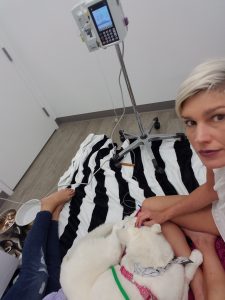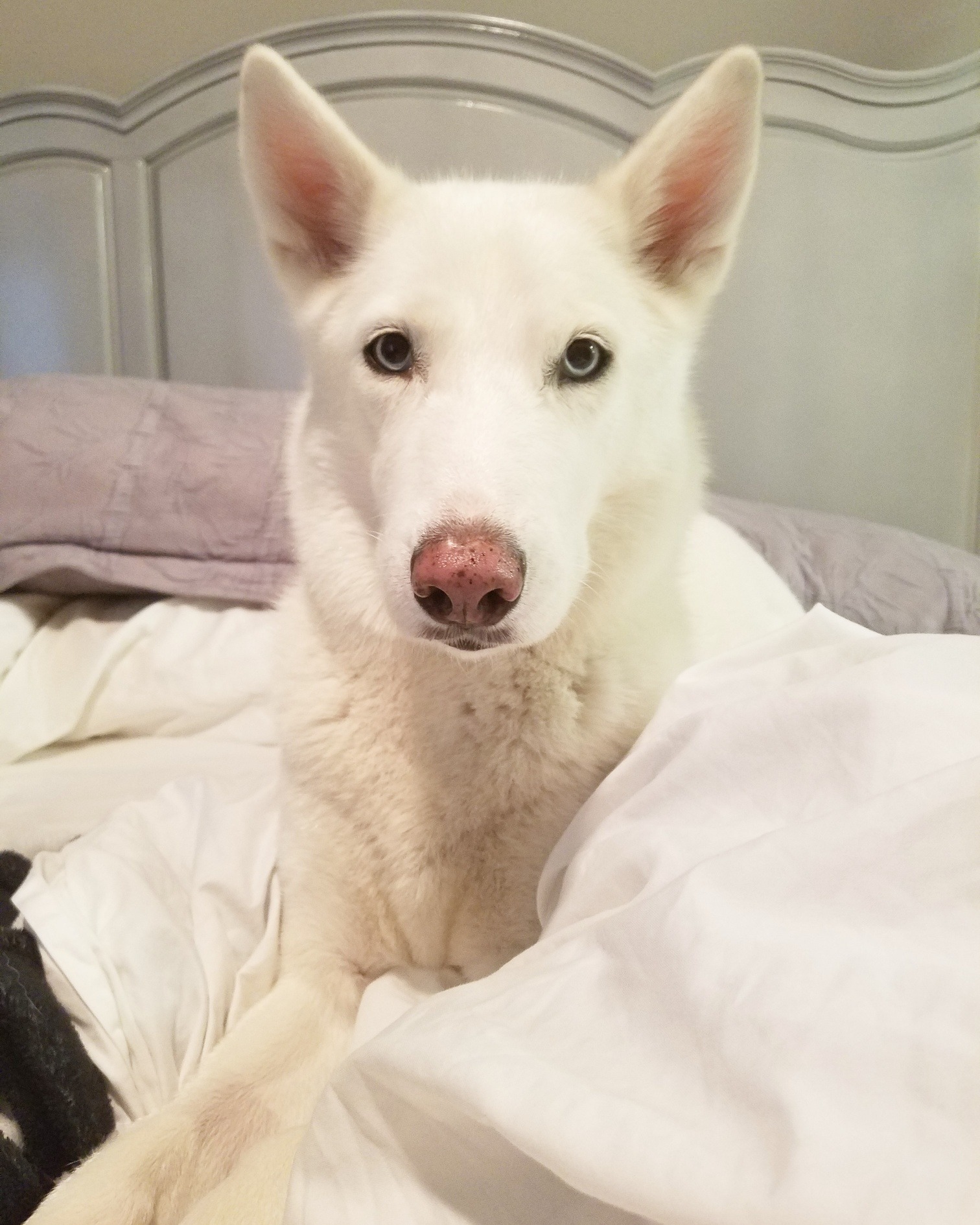Pythium Diagnosis Brings Concern for Some South Florida Pet Owners
“Her entire colon, lymph nodes and intestine were infected,” recalls Violeta Stamatovska sadly. Her sweet six-year-old husky Mika had been through the battle for her life. It all began when Violeta noticed Mika’s potty habits had changed. “There was diarrhea, then bloody diarrhea, then just blood,” adds Violeta. Violeta’s family veterinarian examined Mika and found abnormalities that required specialty care. They suggested she take Mika to see Dr. Jeff Toll, board certified veterinary internal medicine specialist and Co-Director at Advanced Veterinary Care Center in Davie. “I thought she had colon cancer,” says Violeta. “At this point, she had lost 6 or 7 pounds.”

Mika with Violeta at AVCC
At Advanced Veterinary Care Center (AVCC), Dr. Toll ran a series of diagnostics including abdominal ultrasound, colonoscopy and biopsies. In speaking with Violeta, Dr. Toll discussed Pythium could be a possible cause, as he had recently seen an increase in Pythium cases. “I had never heard of that,” says Violeta. “I was almost hoping that she would have Pythium instead of colon cancer.” Mika’s test results came back without evidence of cancer. That’s when samples were sent to pathology to check for infectious disease. Those results came back positive for Pythium. “I was so nervous and worried,” adds Violeta. But, Dr. Toll was incredible! He was so thorough in examining her to find out the potential cause.”
What is Pythiosis?
Pythiosis is a fungal-like infection that can be obtained from contaminated water sources. It’s most often seen in areas along the gulf coast during fall and winter months. “It’s our concern that Pythiosis is on the rise in our community although we don’t know for sure,” says Dr. Toll. “We’ve had 5 confirmed cases in our community in as many months, which is quite concerning. Four cases were brought to us at AVCC and one was at a nearby clinic. The infection is obtained from contaminated water sources, usually lakes or canals. Aside from swimming in these areas, the biggest danger may be household irrigation systems that draw water from an infected lake or canal rather than from the municipal supply. It is unclear why the incidence may be increasing. We reported our concern to the state veterinarian and I understand they are investigating.” Mika, who lives in Boca Raton, never swam in a lake or river. Her infection is suspected to be from standing water, possibly infected reclaimed water or even bacteria in the dog park water bowl.
How is Pythiosis treated?
The typical course of treatment for Pythiosis is surgical removal of the infected area. However, in cases where the disease is present in multiple areas, medical therapy including medication is the only treatment plan. In those cases, survival rate is about 1 in 5. For Mika, surgery was not an option, as the infection had spread throughout her body. “When I read more about it online, it seemed there was no hope,” adds Violeta. “But, Dr. Toll is probably the smartest person in the entire world. He was so good at educating me about what he knew.”
Dr. Toll reached out to other board certified veterinary internal medicine specialists, nationally asking their opinion. He researched and found a case study with a German shepherd who was in a similar situation and was successfully treated with medication. Mika was started on multiple medications to treat her illness. Violeta, a very dedicated pet mom also added her own integrative therapies including hyperbaric treatments to supplement Mika’s care.

Mika at home with Violeta
At her three-month check up, Violeta received the great news that Mika’s tests came back negative for Pythium. “She is clearly responding well to medication so far,” according to Dr. Toll. Mika will continue to be monitored for the infection, but today, she is happy and healthy at home with her loving mom! “I don’t think it’s possible to find a better doctor,” says Violeta. “Everyone at AVCC is amazing and they really do care about the animals. You can tell they are happy with their work and have a great energy. Dr. Toll really saved Mika’s life. If I had brought her to any other vet, I know she wouldn’t be here right now.”

